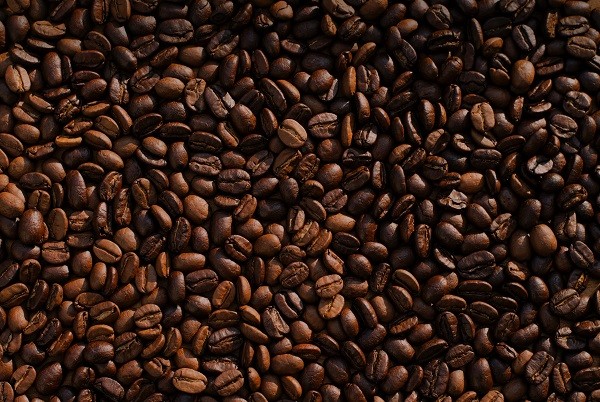The Benefits of Coffee for Weight Loss and Health

Coffee for weight loss
Coffee has long been touted as a way to help us increase fat loss.
And the good news is it's not a myth!
Very recently in 2021 did another coffee study excite fitness fanatics and coffee lovers around the world.
The researchers gave their subjects about 3 mg per kilogram of body weight, 30 minutes before aerobic exercise (this is equivalent to one strong coffee).
And they reported significant increases in the rate of fat burnt.
Also of interest, was how they found that if the exercise was done in the afternoon, the fat-burning effects of the coffee was superior when compared to the morning!
15 men with an average age of 32 took part in the study and had the aforementioned caffeine dose at either 8am and 5pm, or a placebo. All subjects took part in all four conditions in random order.
And the interesting question here is whether or not more fat was burned because the cardio was done on an empty stomach with the coffee, or if it was because it was done in the morning.
It has certainly generated more questions for science to tackle, as fasted cardio has been shown to not be any better than fed cardio in previous research.
Another review in 2019 examined 13 randomised controlled trials (the gold standard of scientific research) in order to get a solid answer about caffeine consumption and weight loss. The researchers concluded:
"Overall, the current meta-analysis demonstrated that caffeine intake might promote weight, BMI and body fat reduction."
Moreover, caffeine (in concert with green tea) was found in this study to help moderately obese subjects lose weight, without any exercise at all!
There's a very strong chance that caffeine (and thus coffee) taken before exercise, will help you burn more fat somehow.
And in terms of timing your caffeine intake, research shows that elevated levels of caffeine appear in our blood stream within 15–45 min of ingestion, peaking around 60 minutes after we consume it.
How does caffeine actually burn fat?
This is a complex happening, but simply, caffeine increases the excitability of the sympathetic nervous system, which is a critical part of the autonomic nervous system. The autonomic nervous system plays a key role in keeping up the consistent level of energy via hormonal and neural control.

So, the activation of the sympathetic nervous system comes with it:
- A suppression of hunger
- Enhanced satiety (the feeling of being full)
- An increase in calories burnt from exercise
- All in part by an increase in fat burnt
Coffee to enhance performance
Coffee is also a terrific performance-enhancing aid, which can ultimately mean more calories are burnt (as we touched on above).
Further research has found caffeine to improve endurance, sprinting and strength training performance.
But we must point out that the studies that have found a performance benefit when it came to strength training, had larger doses of caffeine -- 5-6 mg per kilogram of body weight.
And it's critical we understand that 6 mg per kilogram of body weight per day is the maximum dose that is considered safe.
So, keep that in mind ahead of your next cup!
But all this good news couldn't possibly come without a touch of bad: researchers state that caffeine may need to be cycled in order to keep getting the benefits of it. Having it every day may just negate its powerful effects.
The benefits of coffee for health
Further to enhancing performance and the amount of fat burned, coffee is also beneficial for our health. As one study put it:
"Coffee consumption is associated with improvements in some cardiovascular risk factors, including type 2 diabetes, depression, and obesity. Chronic coffee consumption also appears to protect against some neurodegenerative diseases and is associated with improved asthma control, and lower risks for liver disease and cancer."
There's no doubt that the case for coffee is strong on a number of fronts!

The FDA suggests about 400mg per day of caffeine is safe for healthy adults, which is about four to five cups of coffee per day.
The bottom line is that caffeine can help us burn more fat whilst suppressing hunger, increasing satiety, and increasing the calories we burn from exercise. A safe dose of 5-6 mg per kilogram of body weight is recommended, whilst anything over 6 mg is considered unsafe. The FDA recommends no more than 400mg of caffeine a day, which equates to four to five cups of coffee.
Coffee might also help improve our health; associated with potentially protecting us against a number of diseases.
References:
- Astrup A, Toubro S, Cannon S, Hein P, Madsen J. Thermogenic synergism between ephedrine and caffeine in healthy volunteers: a double-blind, placebo-controlled study. Metab Clin Exp 1991;40:323–9
- Glade MJ. Caffeine-not just a stimulant. Nutrition 2010;26:932–8.
- Harpaz E, Tamir S, Weinstein A, Weinstein Y. The effect of caffeine on energy balance. J Basic Clin Physiol Pharmacol. 2017 Jan 1;28(1):1-10. doi: 10.1515/jbcpp-2016-0090. PMID: 27824614.
- Helms, E.R., Aragon, A.A. & Fitschen, P.J. Evidence-based recommendations for natural bodybuilding contest preparation: nutrition and supplementation. J Int Soc Sports Nutr 11, 20 (2014). https://www.tandfonline.com/doi/full/10.1186/1550-2783-11-20
- Nawrot P, Jordan S, Eastwood J, Rotstein J, Hugenholtz A, Feeley M: Effects of caffeine on human health. Food Addit Contam. 2003, 20: 1-30.
- Ramírez-Maldonado, M., Jurado-Fasoli, L., del Coso, J. et al. Caffeine increases maximal fat oxidation during a graded exercise test: is there a diurnal variation?. J Int Soc Sports Nutr 18, 5 (2021). https://www.tandfonline.com/doi/full/10.1186/s12970-020-00400-6
- Schoenfeld BJ, Aragon AA, Wilborn CD, Krieger JW, Sonmez GT. Body composition changes associated with fasted versus non-fasted aerobic exercise. J Int Soc Sports Nutr. 2014;11(1):54. Published 2014 Nov 18. doi:10.1186/s12970-014-0054-7
- Tabrizi R, Saneei P, Lankarani KB, Akbari M, Kolahdooz F, Esmaillzadeh A, Nadi-Ravandi S, Mazoochi M, Asemi Z. The effects of caffeine intake on weight loss: a systematic review and dos-response meta-analysis of randomized controlled trials. Crit Rev Food Sci Nutr. 2019;59(16):2688-2696. doi: 10.1080/10408398.2018.1507996. Epub 2018 Oct 18. PMID: 30335479.
- Westerterp-Plantenga MS, Lejeune MP, Kovacs EM. Body weight loss and weight maintenance in relation to habitual caffeine intake and green tea supplementation. Obes Res. 2005 Jul;13(7):1195-204. doi: 10.1038/oby.2005.142. PMID: 16076989.
















































